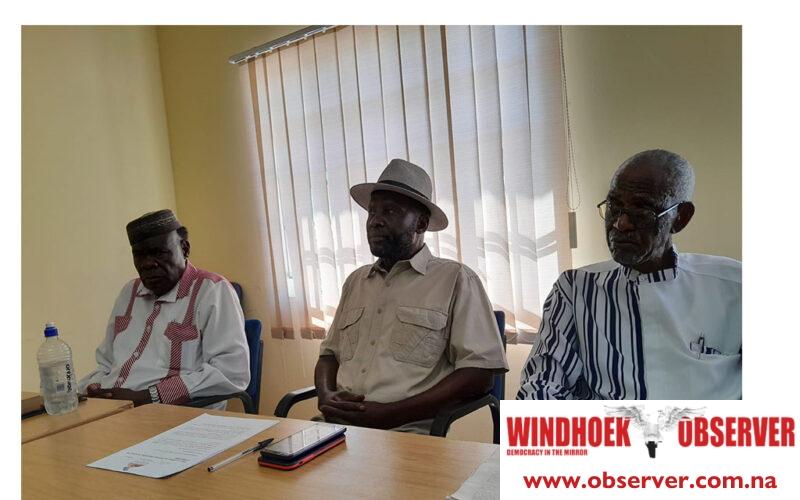Stefanus Nashama
The King of Ondonga, Tate Omukwaniilwa Fillemon Shuumbwa Nangolo, has directed that 54 farming units of the land of the Okashana Kuukongo WaNehale in the Oshikoto region be used for crop production.
The land was allocated to individuals who were ready to start production.
The Ondonga Traditional Authority (OTA) chairperson, John Walenga, announced this at the media conference held in Ondangwa on Wednesday.
“This resulted in the engagement of a professional land survey to subdivide some of the land into 54 farming units, which were allocated to individuals who are ready to use the land for crop production,” he said.
The initiative, according to Walenga, aims to combat hunger and improve food security in the nation.
The decision was prompted by a representative from an interest group that claimed that the farms had been sold to individuals by the OTA.
Those whose animals have been grazing there have disposed of the land as a result.
Despite the claims, Walenga reiterated that a vast piece of land was still available for grazing for the local farmers within that zone.
According to Walenga, the land has been allocated to individuals for a period of five years, from 2023 to 2028, on a leasehold basis.
“The land remains under the jurisdiction of the reigning King of Ondonga and does not resort under a district jurisdiction,” he stressed.
After that period, the land can still be allocated to those who would be ready to do crop production.
Walenga went on to say that the people who received the land fenced it to keep grazing animals away from crop production.
He condemned those who claim not to know about this initiative.
“It is very strange that people claim they are not aware of the initiative because they were well informed,” he said.
The OTA did not provide a list of the people who received land for crop production.
“The names of the land beneficiaries are not available at the moment, but will be provided to you once they have been verified,” he said.
Walenga emphasised that the OTA operates under the powers and customs protected in Articles 66 and 102 of the Namibian Constitution, supported by the Traditional Authority Act of 2000.
“The OTA is tasked, amongst other things, to be the custodian of the customs, preserve the traditional values, maintain order and foster development within the Ondonga community,” he stated.
Last month 18 people were arrested by the police for illegally attempting to occupy the land.
The majority were cattle herders who took the law into their own hands to remove the fences.
Walenga said the OTA does not condone such behaviour.
“Any person who has the need or grievance over the issue of the land must follow the right procedures that are in place at both the national and traditional authority levels,” he said.
He appealed to peace-loving and law-abiding citizens to support the crop production initiative.




